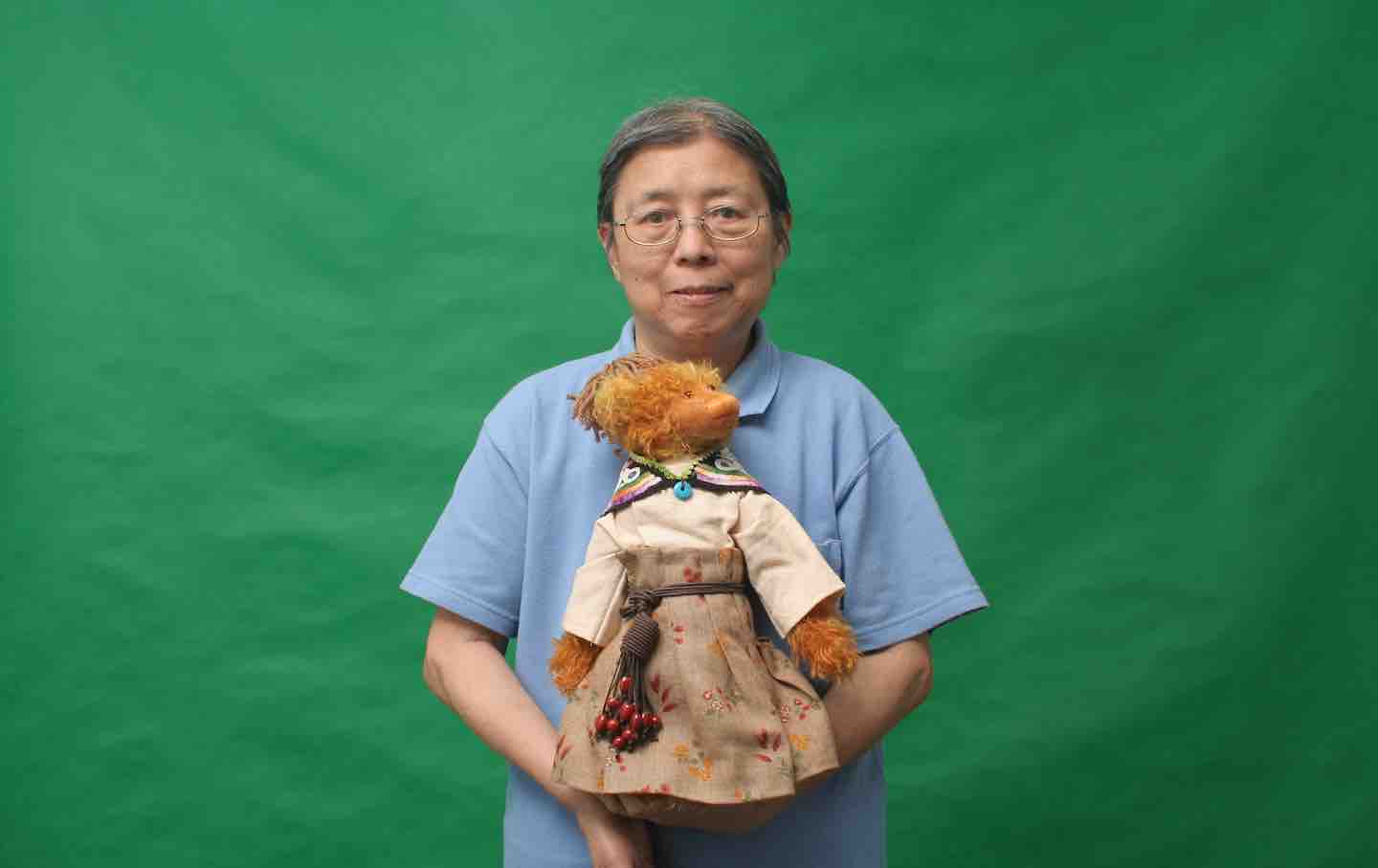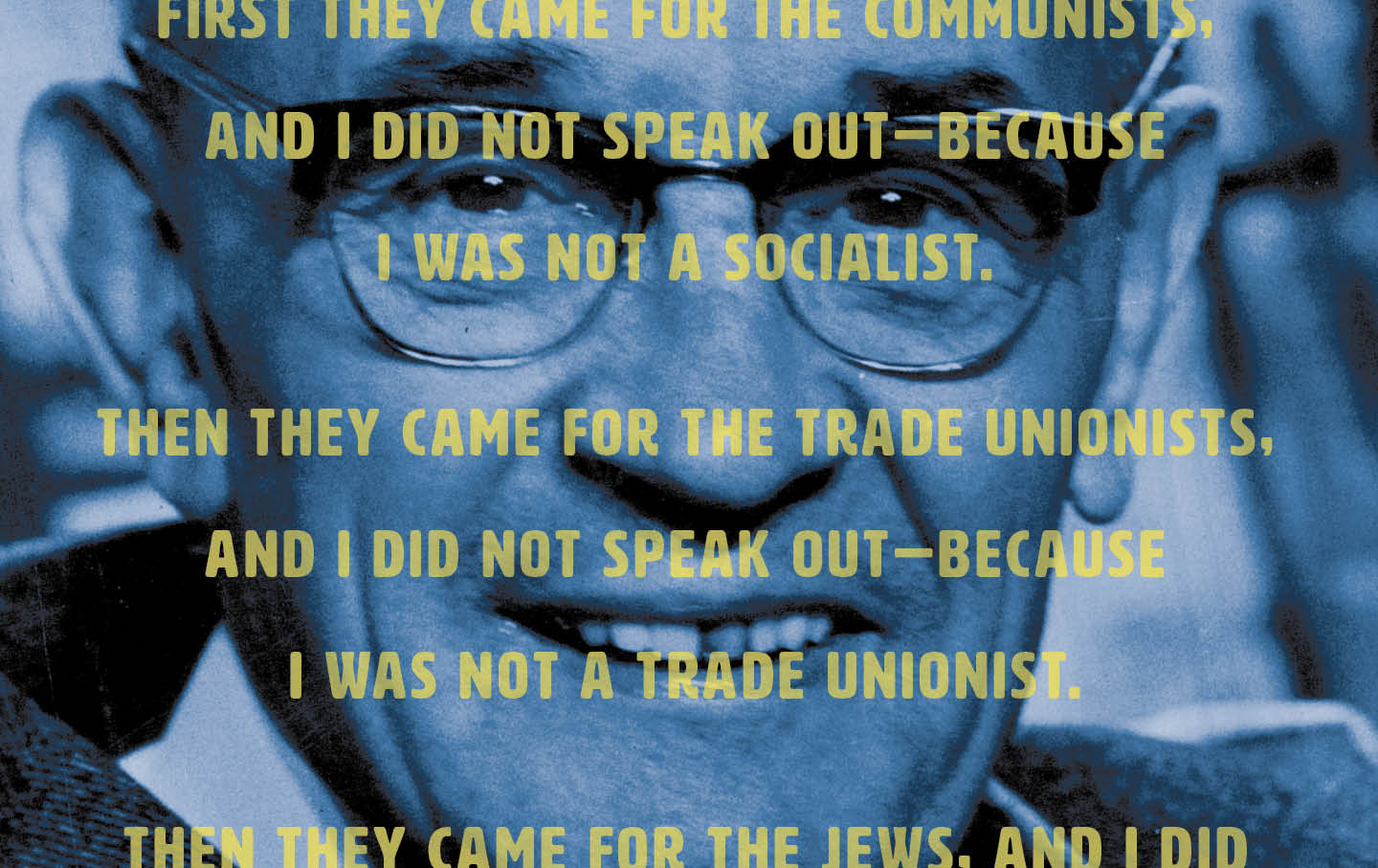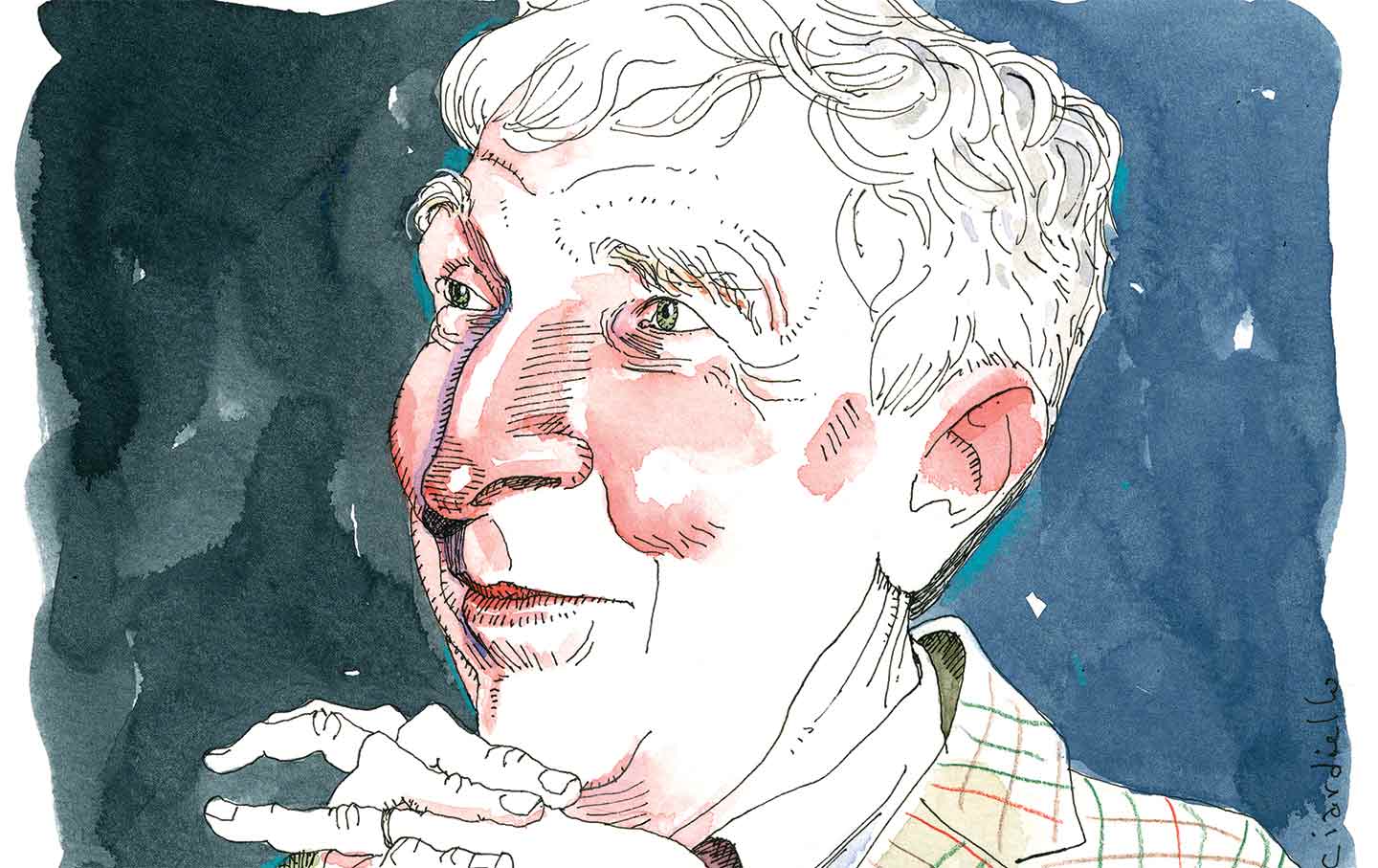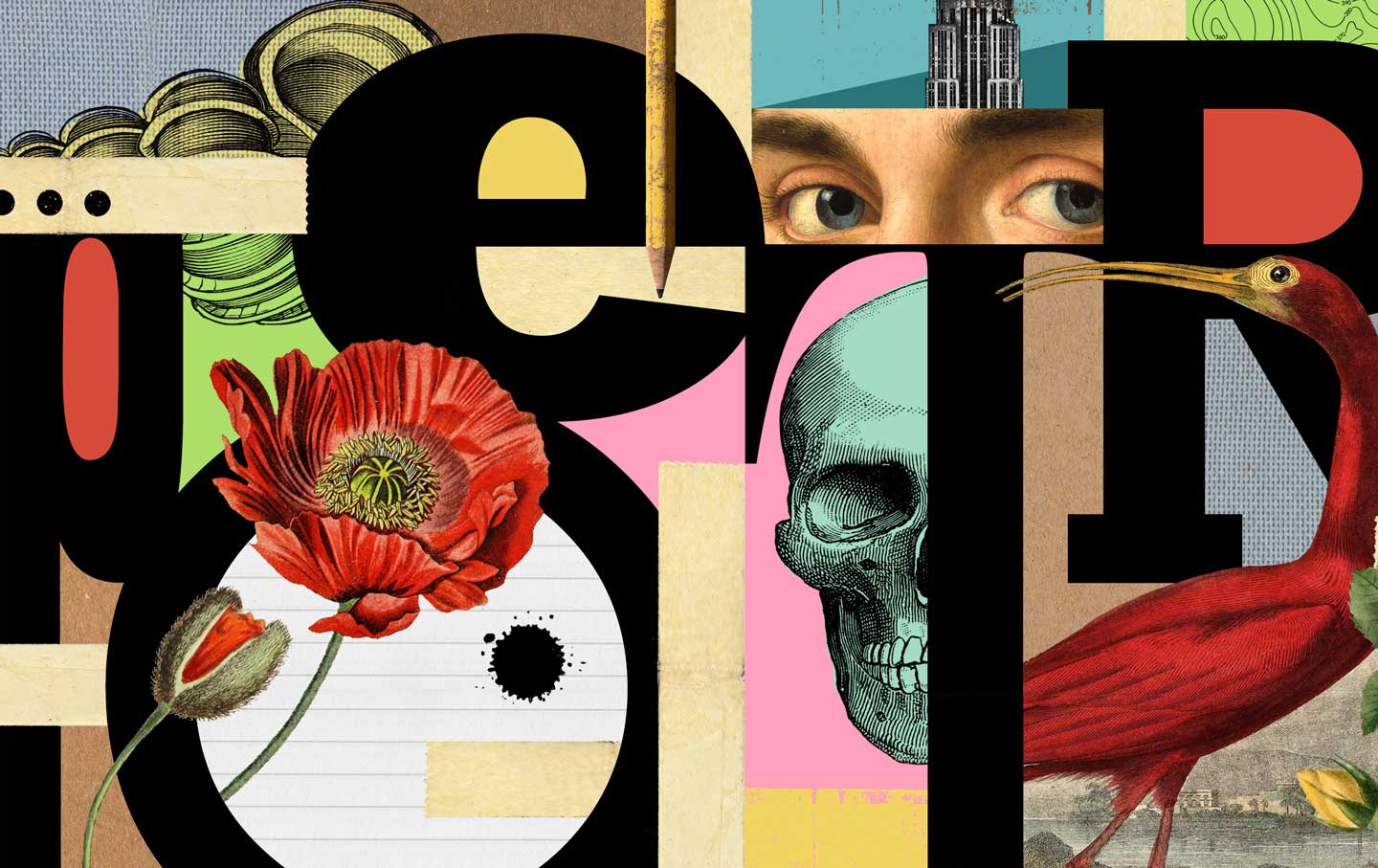The Magic and Mischief of Xi Xi
Her penchant for transforming taboo subjects—death, illness, or gender—into fodder for intellectual delight made her one of Hong Kong’s great writers.

When the Hong Kong writer Xi Xi was diagnosed with breast cancer in her early 50s, she tried to model her relationship to the disease in the manner of stoic writers who had come before her: Sigmund Freud apparently turned down painkillers and simply focused on writing; a cancer-ridden Wittgenstein favored travel over the hospital; and Aldous Huxley still managed to dictate his final essay, “Shakespeare and Religion.” For Xi Xi, these writers and thinkers came to represent a triumph over physical and psychological pain. Like Susan Sontag eschewing any mention of her own Stage 4 breast cancer diagnosis in her 1978 text Illness as Metaphor, Xi Xi preferred an intellectual approach over an exercise in self-pity in Mourning a Breast, the book that recounts her battle with cancer. Interspersed throughout her straightforward account of illness and recovery are musings about tai chi, translation, and the Ming dynasty’s Eastern Depot, along with fantastical “non-stories” about Soviet astronauts and their “space tumors” that blur the line between fact and fiction.
Books in review
Mourning a Breast
Buy this bookThe original Chinese text of Mourning a Breast was published in 1992, three years after Xi Xi’s diagnosis, and at the time it constituted the rare literary work in the Chinese language about cancer. Prior to the publication of this recent translation by Jennifer Feeley, there had been no official English version; one Literary Hub article from 2018 referred to the book as Elegy for a Breast. The word “mourning” in this edition’s title adheres more closely to the original Chinese, but it is almost a misdirection, because Xi Xi’s grief over the loss of this part of her body is inquisitive, even irreverent, but rarely affective, despite the gravity of the subject matter. The writer’s “mourning” process involves giving a detailed account of her mastectomy and radiation therapy, along with the characters she encounters at the hospital; a “choose-your-own-adventure” device at the end of many chapters that urges bored readers to skip ahead; and etymological plays on the prefix “mal,” as well as the linguistic connection between cancer and crabs. (The word cancer was derived from Greek and Latin and means “crab,” and in a section on her love for crab feasts, Xi Xi wonders if the crabs were returning to exact their revenge.)
This is not to say that Xi Xi never reveals or succumbs to her emotions. At one point, she expresses indignation at her diagnosis as someone who did not smoke or drink, and she describes the moment she was told about her malignant tumor as feeling like her head was being frozen into a block of ice. Other times, she compares the radiation therapy room to a spiritual purgatory, which terrifies her. But the emotional beats are brief, even though her treatment did leave her with permanent scars and disabilities—from the breast she lost to painful nerve damage in her right hand. In the years that followed the book’s publication, she would eventually lose mobility in that hand and learned to write with her left.
Despite these physical and, at times, psychological hardships, the book remains playful and humorous, characteristic of her approach of tackling serious topics with a light touch. Xi Xi’s first novella, East Side Story, was published in 1966, just before she turned 30, but her major literary breakthrough came in 1975, when her novel My City was serialized in the Hong Kong Express Daily; it would be published in book form in 1979. In the opening chapter of My City, the narrator, Ah Guo (or Fruit), describes the funeral of his father in a distant, nonchalant style that borders on the absurd, a prelude to both Xi Xi’s fascination with mortality and her rejection of a solemn or sentimental approach to death. The titular tale in A Girl Like Me and Other Stories (1986) is about a woman who works as a mortuary beautician and, by the nature of her profession in the death-averse Hong Kong society of the time, is already anticipating her abandonment by the man she desires. This determination to tackle a taboo subject head-on would later culminate in Mourning a Breast.
Throughout her seven-decade-long career, Xi Xi (born in 1937 as Cheung Yin) wrote an enormous number of short stories, essays, and poems that helped consolidate her place in the city’s literary landscape. But her legacy as the godmother of Hong Kong magical realism—still a dominant form of literary fiction in the city today thanks to writers like Dung Kai Cheung, Hon Lai Chu, and Dorothy Tse—could be attributed to her fiction, notably Marvels of a Floating City (1986). In a series of vignettes in that book, Xi Xi tells the story of a fantastical Hong Kong through 13 René Magritte paintings—a city that hangs suspended in the air and serves as a metaphor for a liminal Hong Kong caught between Britain and China. Xi Xi’s stylizing of Hong Kong as a “floating city” or “Fertile Soil Town” elsewhere in her writing would pave the way for the next generation of writers similarly “dreaming up alternate designations for the city,” per Jennifer Feeley, such as Dung’s “City of Victoria” in Atlas, Tse’s “City 1997,” and Hon’s “H City.” To understand Hong Kong literature as it exists today, one must understand Xi Xi’s work—and, by extension, Xi Xi herself.
It is the context of this legacy that justifies the new translation of Mourning a Breast. There is ostensibly little reason to publish an illness memoir from 30 years ago when there are scores of contemporary illness narratives that would give a more up-to-date account of what it’s like to navigate the medical system after being handed a cancer diagnosis. Yet, at the time of its initial publication, the book was conceived not just as a memoir but as a way to make discussion of illness in Hong Kong a more publicly acceptable act. In one section, Xi Xi guiltily recounts how, decades before, a vice principal at her school had been afflicted with nasopharyngeal cancer, and she had worried about the students in the front row of his talks being infected by his saliva. This self-implicating scene, in its own way, confronts the societal norm that discouraged patients from talking about their conditions.
In an earlier section, as a sort of ironic in-joke, Xi Xi lists jealousy as one of the psychological factors that can induce illness. This foreshadows her elucidation of Sontag’s text, which had set out to illustrate how discussions of illness have been “encumbered by the trappings” of metaphorical language that portrays disease as a form of moral punishment of the afflicted. And while tuberculosis, for example, was considered romantic and literary, cancer was emphatically not. Xi Xi’s efforts to destigmatize cancer are a thread that runs throughout the book. The title itself, Mourning a Breast, with its bluntness and centering of the female anatomy, can be read as an explicitly feminist act, especially in 1990s Hong Kong. Xi Xi’s marked refusal to wallow in self-pity and her brazen approach to her condition (intellectual, discursive, ironic) helped ensure that not even a critic biased against women’s memoirs would be able to accuse the author of navel-gazing.
Though the new translation no longer serves the work’s initial purpose as a text of demystification, Mourning a Breast remains a wonderful companion to illness. Indeed, in Hong Kong, the book still resonates. Not long ago, when a friend from Hong Kong found a tumor in her breast, she turned not to the more recent books about cancer but to Mourning a Breast: No other regional texts since then have gained the stature of this work. Writing the book, for Xi Xi, was “a form of self-therapy,” but she was also calling on readers to be literate in the inner language of their body and to listen to its signs, as opposed to being fixated on the mind, as she had been. Just as her fellow sister in illness Ah Kin had patiently reassured her over the phone not to be afraid, Xi Xi’s writing serves as a gentle, empathetic guide through diagnosis, treatment, recovery, and aftercare that reminds any reader facing the same predicament that they are not alone.
The salience of Mourning a Breast as an instructional text today is of course limited, and the lengthy passages in it on medicine and health can at times even border on the tedious. Why, then, has this book been singled out amid the large body of Xi Xi’s oeuvre that could be translated? For one thing, if you read no other book by her, Mourning a Breast is sufficient to offer an overview of Xi Xi’s prose style and preoccupations, her mischievous nature, and the breadth of her knowledge, as well as scenes from her daily life in Hong Kong as a writer, all in a single volume.
This translation comes shortly after Xi Xi’s death and is, in a way, a best-of anthology of her writing. The essayistic sections showcase her talent for breaking down complex medical issues into plain language for a general audience, and she deftly weaves notes from her research into scenes and diaristic accounts. The fragments, conversational transcripts, and poetry scattered throughout the book are a nod to her interest in formal experimentation. Her penchant for fabulism comes through in a chapter in which she describes a journey to the supermarket as a Journey to the West episode of “Thrice Striking the White Bone Demon,” in which she eliminates all the foods she can no longer eat in the aftermath of her diagnosis, including refined white sugar, white bread, and preserved meats. Elsewhere, she presents meticulous catalogs of her nutritional intake and offers “marvelous tales of fruits and vegetables” in which she ponders whether a female cheetah that was put on a vegetarian diet was spared from breast cancer as a result. This frenetic listing is reminiscent of her poem “Can We Say,” collected in 2016’s Not Written Words, also translated by Feeley, in which she offers a list of mismatched nouns and classifiers: “Can we say / an excellency of ants / a caucus of cucarachas / a hamlet of hams / a sandwich of heroes.” The Hong Kong writer Wong Yi says that the book “shows you who Xi Xi is as a person,” and that reading it “is like taking a trip through Xi Xi’s personal museum of art, literature, and experience.”
This is the other way to read Mourning a Breast: as a memoir of tangents. In the “Arcades” chapter, we follow a flâneuse Xi Xi as she offers us a tour of colonial Hong Kong in the late 1980s and early ’90s, taking us through landmarks such as the Star Ferry Pier and the HSBC Building while introducing us to the “King of Kowloon,” the street calligrapher Tsang Tsou-Choi. In the book’s last section, she examines the ways that breasts have been viewed in ancient civilizations and throughout art history, referring to the Iliad, the French painter Pierre-Auguste Renoir, and the mythical she-wolf of Rome. We can hardly make it through a few pages without mentions of what Xi Xi is reading (Italo Calvino) or listening to (“Meeting in the Pavilion” from The Butterfly Lovers), and sometimes she also makes digressions into Chinese history (the late-17th-century emperor Kangxi, she notes, was a surprisingly competent doctor but a rather poor ruler).
Together, these references reveal a certain archetype of women from that era of Hong Kong: the public intellectual. In its description of the Chinese original, Xi Xi’s publisher referred to Mourning a Breast as “the fantastical lived experience of an intellectual confronted with the evil of cancer.” When the lawyer and writer Margaret Ng revisited the book shortly after Xi Xi’s death, she recalled that she had written a review of Mourning a Breast in 1995 titled “The Breast of an Intellectual.” It was a book, Ng said, by a writer who was at ease with Chinese and Western culture—and who, in her isolation, sought solace in music, knowledge, and her own dignity as a refined woman with a firm grip over her emotions. Ng, too, was among those intellectuals who had been brought up in colonial Hong Kong, as were the director Ann Hui and the artist May Fung: They were no-nonsense pioneers in their fields, well-read and multilingual.
The issue of translation is a thread that comes up for Xi Xi herself in the book. Xi Xi was fluent in Cantonese, Mandarin, Shanghainese, and English, and had a working knowledge of Spanish and French. Mourning a Breast, Feeley writes, is a work that is “in dialogue with world literature and culture,” including Xi Xi’s own insights on translation. She recalls her translation of a story by the Mexican author Juan Rulfo and questions why she had faithfully relied on an English translation of it, while reflecting on the historian E.H. Gombrich’s idea about the untranslatability of certain cultural traditions. When bored in the hospital, Xi Xi looks at translations of Madame Bovary against the original French and questions the use of italics. Translation also comes into play in her meditations on the language of the body as a metaphor for the difficulties of reading its symptoms.
Xi Xi’s prose, in the original Chinese, is clean and conversational; her fondness for wordplay, however, seeps through. There are limitations to how far this linguistic experimentation can be conveyed in English, though Feeley has sought to re-create it—in one instance, where Xi Xi plays on a Chinese idiom about the gallbladder and liver, by translating the sentence to include the word “gallantly.” Feeley has written elsewhere that it may be impossible to capture the specificities of Xi Xi’s wordplay, but she still implores translators to come up with creative solutions rather than write such wordplay off as untranslatable. It is unlikely that Xi Xi herself would have found much fault with Feeley’s translation: Aside from once writing a poem in honor of translators, she writes in the book that she does not search for an ultimate translation, nor does she believe that there is such a thing as an absolute spirit within a text.
Xi Xi lived to the age of 85 and died in December 2022 of heart failure. By then, she had long cemented her position as a representative literary voice of Hong Kong. Wong Yi, who sometimes introduces herself as Xi Xi’s biggest fangirl, paid tribute to her via an opera based on her work. She is currently working to establish an archive of Xi Xi’s materials and collections, together with the writers Louise Law and Lau Wai Shing and Xi Xi’s close friend, the poet Ho Fuk Yan. Mourning a Breast is likewise an archive of Xi Xi’s body and mind, a window into the everyday life of one of the most celebrated writers in Hong Kong.
More from The Nation

The Strange Story of the Famed Anti-Fascist Lament “First They Came…” The Strange Story of the Famed Anti-Fascist Lament “First They Came…”
In his celebrated mea culpa, the German pastor Martin Niemöller blamed his failure to speak out against the Nazis on indifference. Was that the whole reason?

“The Paper” and the Return of the Cubicle Comedy “The Paper” and the Return of the Cubicle Comedy
The new show from the creators of The Office reminds us that their comedic style does now work in every “workplace in the world.”

John Updike, Letter Writer John Updike, Letter Writer
A brilliant prose stylist, confident, amiable, and wonderfully lucid when talking about other people’s problems, Updike rarely confessed or confronted his own.

The Grand Delusions of “Marty Supreme” The Grand Delusions of “Marty Supreme”
Josh Safdie’s first solo effort, an antic sports movie, revels in a darker side of the American dream.

TikTok’s Incomplete Story TikTok’s Incomplete Story
The company has transformed the very nature of social media, and in the process it has mutated as well—from tech unicorn to geopolitical chesspiece.



